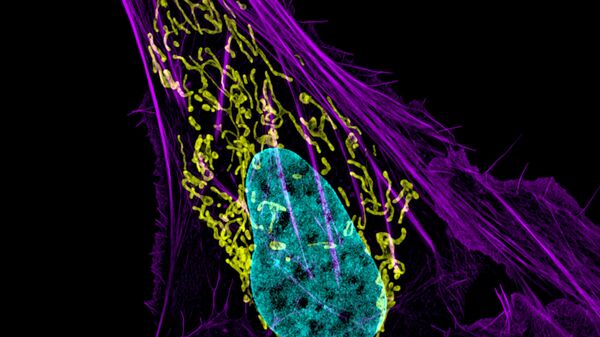A new report released this week by the American Cancer Society reveals that the death rate from cancer in the US dropped by 2.4% from 2017 to 2018, a record decline for one year. The report also notes that overall cancer death rates in the US decreased by 31% between 1991 and 2018.
The reduction in mortality rates for the leading cancers in the US, namely, lung, breast, colorectal and prostate cancers, are due to reductions in smoking, earlier detection and improvements in treatment, the report explains. Lung cancer specifically is the most common cause of US cancer mortality and accounts for more deaths than breast, prostate and colorectal cancers combined.
According to the American Cancer Society, lung cancer “accounted for almost half (46%) of the overall decline in cancer mortality in the past 5 years and spurred a record single-year drop (2.4% from 2017 to 2018) for the second year in a row.”
The decrease in lung cancer mortality is also due to better treatment for a common subtype of the disease, namely non-small cell lung cancer (NSCLC), one of the two major types of the disease which can impact both smokers and nonsmokers.
“Two-year relative survival for NSCLC has increased from 34% for patients diagnosed during 2009 through 2010 to 42% for those diagnosed during 2015 through 2016, including absolute gains of 5% to 6% for every stage of diagnosis,” the report notes.
Despite the fact that recent advances in treatment have decreased cancer mortality rates, the report notes there is still a need for additional investment in fighting the disease.
“While recent advances in treatment for lung cancer and several other cancers are reason to celebrate, it is concerning to see the persistent racial, socioeconomic and geographic disparities for highly preventable cancers,” said William G. Cance, chief medical and scientific officer at the American Cancer Society.
“There is a continued need for increased investment in equitable cancer control interventions and clinical research to create more advanced treatment options to help accelerate progress in the fight against cancer,” he added.
In addition, there is concern that the COVID-19 pandemic has stressed the health care system and will disrupt the progress made in cancer mortality reduction.
“The impact of COVID-19 on cancer diagnoses and outcomes at the population level will be unknown for several years because of the time necessary for data collection, compilation, quality control and dissemination,” explained Rebecca Siegel, lead author of the report. “We anticipate that disruptions in access to cancer care in 2020 will lead to downstream increases in advanced-stage diagnoses that may impede progress in reducing cancer mortality rates in the years to come.”
Despite the reduction in cancer mortality, the disease is still the second leading cause of death in the US, following heart disease, according to the latest data by the US Centers for Disease Control and Prevention (CDC).

